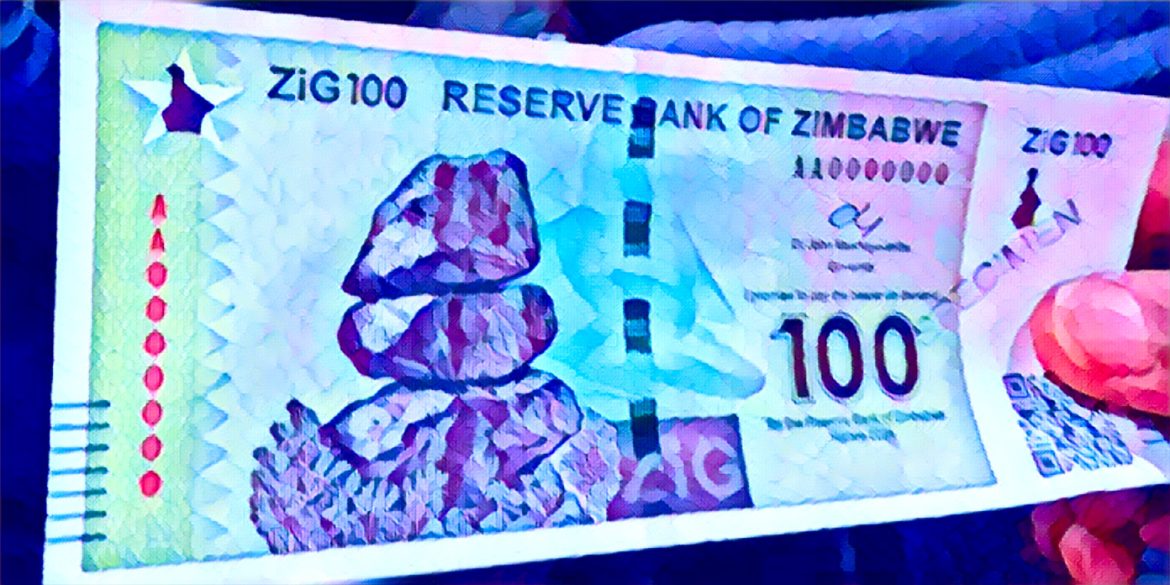KEY POINTS
- The Zimbabwean government is converting outstanding debt into gold-backed bonds with a one-year term and 7.5% interest.
- Wheat producers will now receive payments in US dollars after pressure from farmers.
- The government’s lack of action to support the Zimbabwe Gold currency raises concerns over its viability.
Upon doing a post-mortem in the future to investigate how the Zimbabwe Gold (ZWG) was mutilated, it would be revealed that the hangman was none other than the government, its own parent.
The government gave in to pressure from farmers who insisted on receiving payment in part in local currency, and last week decided that wheat producers would now only get payments in US dollars.
Farmers received 75% of their payout last year in foreign currency and the remaining 25% in Zimdollars at the going interbank rate.
People are concerned that this will allow other industries, like mining and exporting, to keep all of their profits rather than selling 25% to the government at the going interbank rate as required under the surrender rule.
Government debt conversion and foreign exchange obligations
The Government will now convert its outstanding debt in ZWG into an instrument with a one-year tenure and an interest rate of 7,5% annually.
And the Government still owes various businesses for foreign exchange that the treasury purchased under the 25% surrender requirement.
Companies would now receive one year, non -negotiable certificates of deposit, according to RBZ’s previous statement.
The statement reads further, “since the ZWG (previously ZiG) was introduced on April 5, the government has not done anything to encourage the usage of the ZWG.”
ZWG’s viability and government reserves
According to a report by News Day, Governor of the Reserve Bank of Zimbabwe, John Mushayavanhu expressed optimism during the introduction about the growing demand for ZWG, predicting that businesses will grow for the local currency in order to meet their corporate income tax responsibilities.
He also added that ” The Government intends to convert its existing debt in ZWG into a one-year instrument with an annual interest rate of 7.5%.”
“The foreign exchange that the Treasury purchased in accordance with the 25% surrender requirement is still owed by the Government to different firms.”
According to RBZ’s earlier declaration, companies would be given non-negotiable certificates of deposit that would expire after a year.
“Since the ZWG (formerly ZiG) was unveiled on April 5, there has been no action taken by the government to promote ZWG use.”
During the introduction, Mushayavanhu has voiced optimism regarding the increasing demand for ZWG, stating that companies will fight for the local currency in order to fulfill their corporate income tax obligations.
Additionally, “a new quarterly payment period is quickly approaching without the necessary legislation in place for a currency that the government claims is backed by cash reserves and gold.”
“There have been more requests for the government to impose local currency taxes on specific services, like passport costs which seem to be ignored.”
Need for government action to support ZWG
Mushayavanhu stated at the ZWG’s launch that the money was backed by US$285 million in total, which included US$100 million in cash and 2 522 kg of gold worth US$185 million.
“Since the introduction of the local currency, the cover has increased from three to four times.
During a tour of the central bank’s gold reserves one day prior, Treasury Secretary George Guvamatanga informed President Emmerson Mnangagwa that the government had $300 million in private banks set aside specifically to sustain the local currency.
Guvamatanga continued, “And, if you allow me, your Excellency, just for this one day, to mention that the government of Zimbabwe is sitting on reserves of US$300 million not in the central bank, but in several private banks.”
According to Mushayavanhu, ZWG has US$370 million in forex reserves. If the ZWG is to remain viable, the government needs to act on its words.
“Indications suggest that the government is merely making lip service to supporting the local currency’s use, which has been converted into a form of temporary legal money” He concluded.


